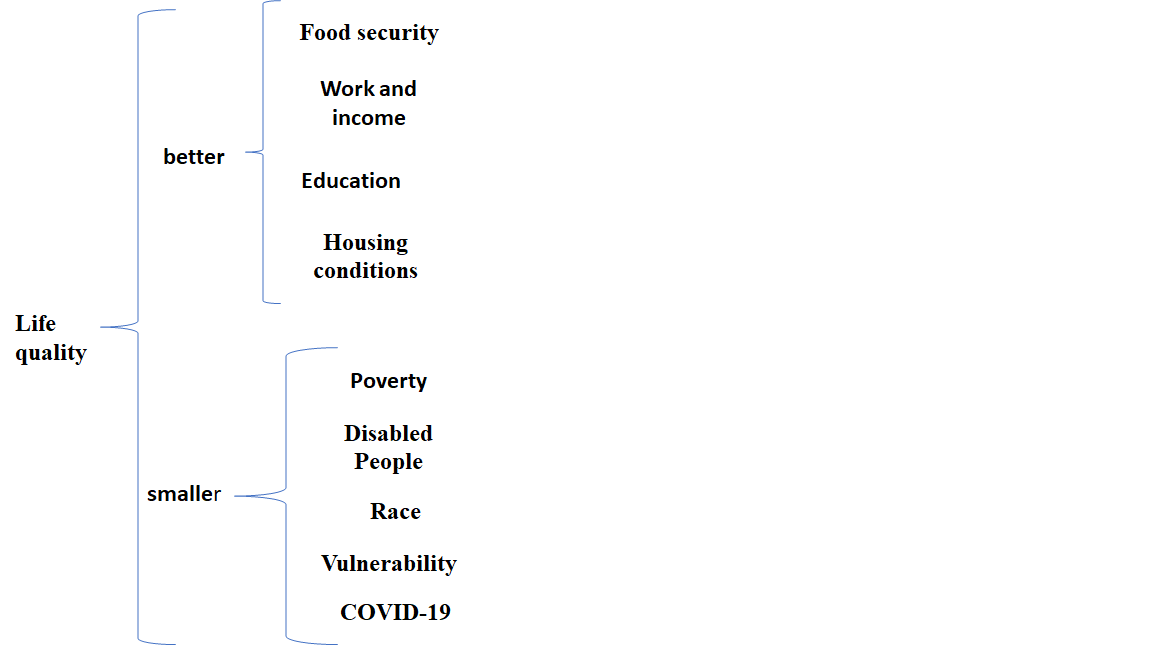Exploratory analysis of hunger, housing and vulnerability, pobreza e COVID-19
Conference
64th ISI World Statistics Congress - Ottawa, Canada
Format: CPS Abstract
Keywords: "life, covid-19, food insecurity, housing conditions, income, poverty, vulnerability
Abstract
According to the UN 2021, between 720 and 811 million people faced malnutrition in 2020, corresponding to something between 9.2% and 10.4% of the world population. In relation to 2019, with the impact of the COVID-19 pandemic, an increase of over 100 million in the number of undernourished people is estimated. Food insecurity is defined as the lack of access by people to food in a regular and healthy way, so that the failure to guarantee this right ends up affecting other essential needs such as cultural diversity, environmental, economic and social sustainability. In Brazil, hunger has always been a serious problem, but with Covid-19, the situation has worsened. According to experts, before the pandemic, there were 57 million people living in food insecurity in the country, without full and permanent access to food; in April 2021, 116.8 million people became food insecure. Social vulnerability is a multidimensional concept that refers to the condition of individuals or groups in situations of fragility, which make them exposed to risks and significant levels of social disintegration. Disabed person is any person who has a loss or abnormality of a structure or function that generates incapacity for the performance of activities that hinder their social inclusion. Race is understood as a social construct, used to distinguish people in terms of one or more physical marks and held responsible for creating and maintaining a system of social inequality. According to the WHO, adequate housing is one that offers shelter from climate change, health conditions, safety and minimum size to be considered habitable. Necessary sanitary facilities must be provided, served by essential public services, including water, sewage, electricity, street lighting, garbage collection, sidewalks, public transport and access to social facilities. A reflection on the consequences of Covid-19 on the economic and social reality of the Brazilian population brings us to complex problematic issues that precede the emergence of the pandemic and which were aggravated by it. Issues such as hunger, food insecurity and poverty deepen and become more expressive with the health crisis. Based on these assumptions, the text aims to analyze the issue of hunger and food insecurity in times of pandemic in Brazil. The complexity of the theme is highlighted, requiring overcoming apparent or individual visions of tragedy. From this perspective, the purpose of this work is to propose, in mathematical and statistical terms, to adjust the regression model so that it can describe the relationship between a set of predictors and a continuous response such as income, production and sale of food using the method ordinary least squares, logistic regression considering as a response variable a categorical variable such as groups of percentiles or groups formed from the allocations made by the cluster method; other classification techniques such as main components, factorial and discriminant analysis, analysis of discrepant data and other techniques that may be considered relevant for analysis and visualization that can assist managers in public policies to combat hunger and improve life for the most vulnerable groups of people.
Figures/Tables
fig1

